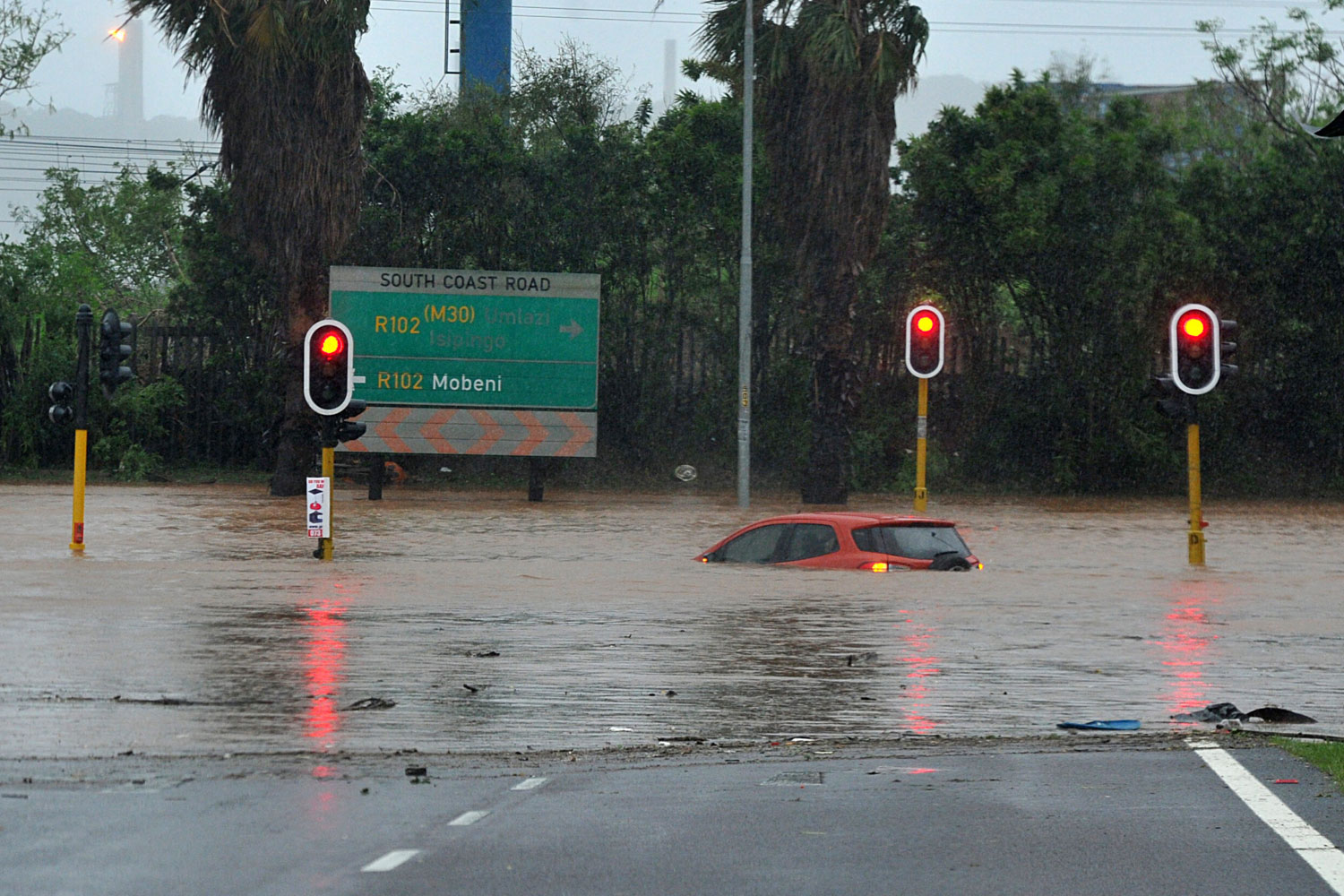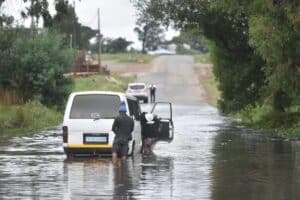The economic cost of the destruction is yet to be determined.

Businesses have halted operations and several key road networks have been closed due to extensive flooding caused by the recent heavy rainfalls in KwaZulu-Natal (KZN).
The past weekend saw South Africa being hit by rainy and cold conditions, particularly affecting the Free State, North West, Gauteng, KZN, Northern and Eastern Cape, and the highveld region of Mpumalanga.
The cold snap did not only spark ongoing power cuts but also led to substantial localised floods as seen in parts of KZN.
ALSO READ: Ramaphosa to visit KZN on Wednesday as death toll rises to 59
CEO of the Durban Chamber of Commerce and Industry, Palesa Phili, said the catastrophic flooding in various parts of eThekwini (the Durban metro) impacted road networks, infrastructure, and major highways such as the M4 and N2.
“These road networks represent crucial business infrastructure, providing a linkage between business and industries in eThekwini,” she said.
“Any loss in any part of this economic infrastructure for an unspecified period will have a devastating impact on the manufacturing, travel and tourism, agriculture and many more [sectors], inevitably causing huge loss through operations and expenses in business.”
Phili notes that many businesses are still recovering from the impact of the July unrest as well as Covid-19, and thus any further losses cannot be afforded.
“Any amount of rainfall in eThekwini could lead to further flooding, as the ground is completely saturated. The magnitude and the frequency of these storms are proving to be a massive risk to the growth and development of the local economy, especially in an already constrained economic environment, with a major challenge being the inability to transport and deliver goods and services to various destinations due to flooding and traffic congestion,” she added.
Transnet reported that the heavy rains have damaged the road infrastructure leading into the Port of Durban, affecting access to the terminals.
“Shipping has been suspended until further notice as a result of environmental damage caused by the adverse weather, and vessels on berth are on standby,” it said in a statement.
ALSO READ: SA halts shipping at key port of Durban after floods
The rail company further notes that operations have been compromised at the terminals due to challenges experienced in handling wet cargo in Richards Bay. Rail lines in certain parts of the province are also operating at limited capacity.
Banking, mobile networks affected
Standard Bank has reported that 34 of its branches and support facilities in KZN have been closed, with those in Durban city as well as those along the South Coast and North Coast being the hardest hit.
The banking group urges customers to use its digital channels in the interim to conduct transactions.
Major mobile network operator MTN says its services have also been disrupted, with 500 sites in the region down.
“The flooding in the KZN region has caused power outages at many of our sites and while we have battery back-up at many of the sites, these batteries have been depleted,” MTN SA executive for corporate affairs Jacqui O’Sullivan said.
“Our major challenge right now is gaining access to the sites with many roads being damaged or flooded, preventing us from refuelling our batteries or restoring power to the site.”
The network provider says its major areas impacted at this stage include Durban South, South Coast, Umlazi, Malagazi, Amanzimtoti, Ballito and Salt Rock.
Vodacom too has been affected.
Cost
According to the Durban Chamber of Commerce and Industry, the exact economic cost of the flooding is yet to be determined.
However it can deduce from its observations that critical infrastructure and various properties have been severely damaged.
“Small businesses may not have adequate insurance to recover their losses, hence jeopardising their existence and sustainability going forward. If these losses are not recovered, over time the local economy can [expect to] suffer significantly,” Phili added.
“The South of Durban continues to be impacted by heavy rain. This region is home to South Africa’s largest manufacturers.
“If the matter is not resolved this will have a negative effect on the country’s overall GDP.”
President to visit province
President Cyril Ramaphosa will visit the province on Wednesday (April 13) to “offer support to affected communities and assess the response of government and civil society to this critical situation”.
The Presidency said in a statement on Tuesday night that Ramaphosa will visit areas that have been “severely impacted by persistent, heavy downpours that have claimed lives, infrastructure and various assets”.
KZN Premier Sihle Zikalala, Metro Mayor Mxolisi Kaunda and other officials will brief Ramaphosa on the extent of damage and the response by government entities.
Ramaphosa will be accompanied by Minister in the Presidency Mondli Gungubele, Minister of Cooperative Governance and Traditional Affairs Nkosazana Dlamini Zuma and Minister of Police Bheki Cele.
* It was reported by eNCA on Tuesday night that Dlamini Zuma has confirmed that the province ‘will be declared a disaster area’.
Palesa Mofokeng is a Moneyweb intern.






